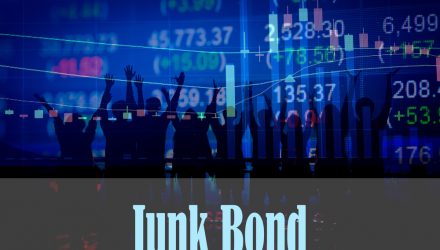As more venture back into risk assets, fixed-income investors are picking up high-yield, speculative-grade corporate bond exchange traded funds.
Among the most popular ETF picks over the past week, the iShares iBoxx $ High Yield Corp Bond ETF (HYG) attracted close to $1.2 billion in net inflows, according to VettaFi data.
“High-yield bond funds are getting inflows due to enthusiasm that the U.S. economy will avoid a recession or if it does have one, that it will be mild,” Thomas Samuelson, chief investment officer at Vineyard Global Advisors, told Bloomberg. “Less severe recessions cause less stress on corporate cash flows and thus fewer defaults of riskier high-yield bonds.”
Marty Fridson, chief investment officer of Lehmann Livian Fridson Advisors, pointed out that with junk bond yields trading around 6%, the speculative-grade credit segment is now trading at distressed levels, compared to the more dire straits back on July 5 when yields were as high as 11.6%, the Financial Times reported. Bond yields and prices have an inverse relationship, so falling yields correspond with rising prices.
Fixed-income investors have dumped high-yield debt, alongside other risk assets, after inflation soared and the Federal Reserve embarked on an aggressive monetary policy tightening outlook to rein in high consumer prices, which some warned could have led to an economic recession.
“Credit, like equities, is a simple animal,” Michael Hartnett, chief investment strategist at Bank of America Global Research, told the Financial Times. “As interest rates were going up and corporate earnings were going down, the first six months of this year was an environment where spreads widened dramatically.”
However, things seem to be turning around or at least are less doom and gloom after the latest inflation data showed a slowdown in consumer prices.
“Over a strikingly short interval, high-yield investors [have come] around to believing inflation is sufficiently under control that the Fed [will]not have to hike interest rates dramatically enough to trigger a deep recession,” Fridson told the Financial Times. “Time will tell whether they were correct in changing their views on that matter.”
For more news, information, and strategy, visit VettaFi.
